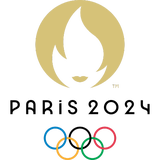
Olympic greats Bubka, Popov deny Rio 2016 vote-buying claims
LAUSANNE, Switzerland (AP) — Olympic gold medalists Sergey Bubka and Alexander Popov have denied claims made in a Brazilian court they were paid to vote for Rio de Janeiro's winning bid to host the 2016 Summer Games.
The International Olympic Committee said Friday its ethics commission has contacted both men about the allegation by former Rio state governor Sergio Cabral, who is serving a prison sentence for corruption.
Cabral's testimony Thursday echoed details of an alleged Olympic vote-buying scheme in 2009 already in the public domain.
Ongoing criminal investigations in Brazil and France have implicated Brazil's former top Olympic official Carlos Nuzman , then-IAAF president Lamine Diack and his son , and then-IOC executive board member Frank Fredericks .
Pole vault great Bubka and swimming star Popov were IOC members voting in October 2009 in a contest between four cities including Chicago.
"I completely reject all the false claims made by the former Rio State governor," Bubka, now an IOC executive board member, said in a statement Friday. "My lawyers will write to Mr. Diack to ask him to explain the allegations of Mr. Cabral who wrongly claims in his testimony that Mr. Diack could secure my vote."
Popov, who is now an IOC honorary member after having full membership from 2000-16, said he didn't vote for Rio in any of the three rounds of balloting.
"I did not participate in any negotiations and I am not familiar with the topics and with the people who are mentioned ... and have never had contact with them," the Russian swimmer said in a statement.
Popov said he was seeking to cooperate with the IOC's ethics investigators, and joined Bubka in saying they were preparing lawsuits for defamation.
Bubka, a Ukrainian who competed for the Soviet Union, is the 1988 Olympic champion in pole vault and held the world record for 30 years until 2014. Popov is arguably the greatest ever men's sprint swimmer and won the 50- and 100-meter freestyle titles at back-to-back Olympics in 1992 and 1996.
They are the latest high-profile names in Olympic circles to be linked to vote-buying investigations for the 2016 Rio Olympics and 2020 Tokyo Olympics. Japan's most senior IOC member, Tsunekazu Takeda, resigned this year, though he denied wrongdoing.
Most of the evidence detailed connects Papa Massata Diack, the son of longtime IOC member Lamine Diack, to irregular payments of hundreds of thousands or millions of dollars.
Fredericks, a four-time Olympic sprint medalist from Namibia, was suspended by the IOC in 2017 after French investigators revealed he received a $300,000 payment on the day of the 2016 Olympics vote in October 2009. It allegedly came from a Brazilian businessman and was routed via Papa Diack.
Fredericks denied wrongdoing and said the money was for consultancy work in athletics.
On Thursday, Cabral told a judge he paid $1.5 million in bribes through intermediaries to Lamine Diack, to secure up to six votes in the meeting of around 100 IOC members awarding the 2016 Summer Games. Cabral added that another $500,000 was paid later to Diack's son to secure three more votes for Rio.
Cabral repeated publicly known claims that Nuzman handled negotiations, and the money allegedly came from businessman Arthur Soares.
Nuzman is due to stand trial for money laundering, tax evasion, and racketeering. French authorities said last month they want both Diacks to stand trial on corruption charges. The elder Diack has been detained in France since 2015, and his son has evaded questioning in their native Senegal.
Fredericks faces preliminary charges of passive corruption and money laundering.
The IOC said Friday is it "fully committed to address any issues" with Olympic bidding, which has been reformed since 2013 when Tokyo was awarded the 2020 Summer Games.
"With these reforms the IOC has turned the page with regard to good governance and in particular the procedure of the election of host cities," the Olympic body said.
